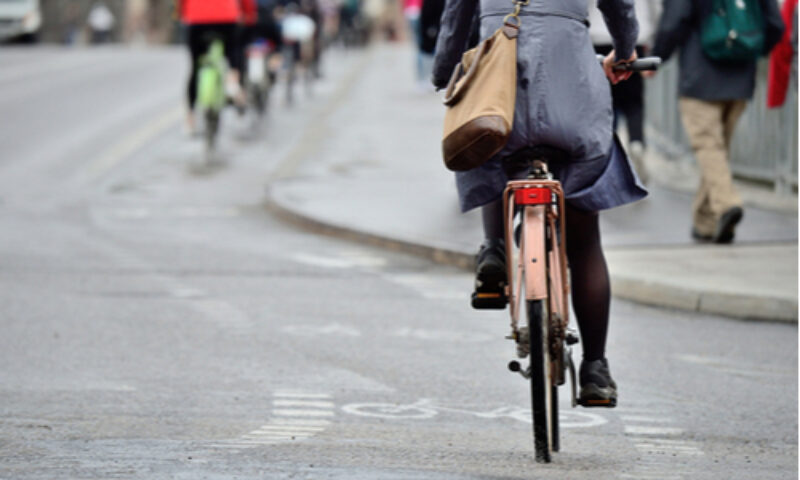On 4 August 2022, thousands of workers will be cycling to work as part of the 10th annual Cycle to Work Day. If you’ve been thinking about taking up cycling, it’s the perfect time to start.
Whether it’s a beloved hobby or you’ve not cycled in years, there are plenty of benefits to making it part of your regular commute. It’s a step that can reduce your carbon footprint and improve your health.
According to Cycling UK, around 5% of people commute to work on a bike in England, and it’s estimated that around 20% of people cycle at least once a week.
If you’re a beginner and aren’t sure where to start when planning your commute, here are seven tips.
1. Take your time choosing a bike
If you’re thinking about buying a new bike to make cycling to work a regular part of your routine, spending some time looking through all the different options can help you pick the right bike for you.
Hybrid bikes are often popular with commuters. They are usually good all-round bikes that can handle different terrains that may be part of your route.
Other things to consider are whether you’d like an electric bike, which can be useful if you live in a hilly area, or a foldable bike, which is a great option if you still need to use some public transport or have limited space to store your bike.
2. Make sure you have the right accessories
It’s illegal to cycle on a public path after dark without light or reflectors. So, you should ensure you have these accessories fitted to your bike as a minimum.
Other useful accessories may include a bell and a puncture kit that you can use in emergencies, and, of course, you’ll need a helmet.
3. Review the Highway Code
Even if you drive, spending some time going over the rules of the road is useful. Rules 59 to 82 of the Highway Code cover cyclists, from an overview to how to navigate roundabouts.
As you’re cycling, it’s important to be aware of drivers and communicate effectively, for example, by using clear hand signals when you’re turning. Understanding the rules can make this easier and safer.
4. Plan your route
Don’t leave planning your route until the last minute. Having a clear idea about where you’ll be going can make the journey less stressful and mean you’re well prepared.
There are miles of cycle paths in the UK that are ideal if you’re not confident cycling on busy roads yet. There are many apps available that can help you plan an effective route, including Citymapper and Komoot. Sustrans is also a good resource if you’re looking for cycle routes to enjoy.
In some cases, you may want to take a longer route that uses quieter roads or cycle paths.
5. Make sure you have the right clothing
As you’re heading to work, you may think about simply wearing your work clothes, but investing in some cycling clothing can make sense.
Cycling in your work clothes means you’ll need to wear them all day and you could be uncomfortable if it rains. There’s also a risk that they could get dirty or damaged on the way there. If you do wear regular clothes, be aware of how practical they will be when cycling. Could loose clothes become caught in the chain, for instance?
In addition, the correct clothing can mean you’re safer. For example, if you’ll be cycling at night, reflective items can mean cars are far more likely to see you.
6. Think about what you need to take with you
If you’re travelling to work, you may need to take items with you. Think about what you’ll need and the best way to transport them. Will you need to carry a laptop, or do you normally take lunch with you?
A sturdy backpack may be enough to fit everything in, but this can make cycling more difficult and cumbersome. A rack or saddle bag can mean you’re far more comfortable when cycling to and from work.
7. Give yourself plenty of time
You don’t want to realise you’re going to be late mid-journey. It can mean you’re cycling feeling stressed or need to push yourself more, which can lead to accidents.
If you can, try giving your route a test run so you have a good idea of how long it’ll take. If not, overestimate how long the journey will be so you have plenty of time to arrive.

